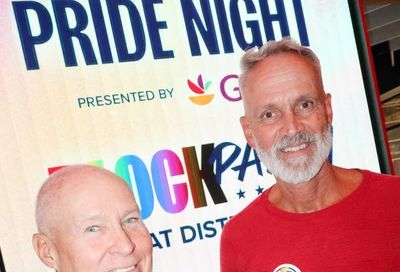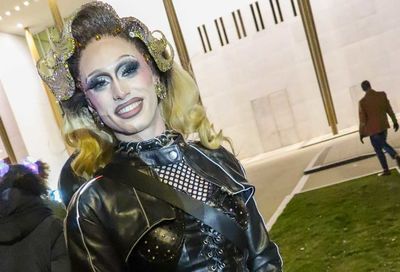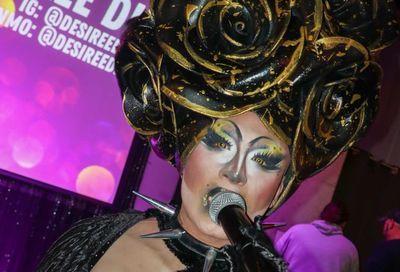Orlando: Much has happened in the two weeks since the shootings
Two weeks after Orlando, the LGBT community is finding its focus, politicians are returning to normal, and the investigation into Omar Mateen deepens

“We stand with you today as we grieve together,” Attorney General Loretta Lynch said at a press conference in Orlando this week. “And long after the cameras are gone, we will continue to stand with you as we grow together in commitment, solidarity and in equality.”
Lynch was speaking directly to the local community, after announcing that $1 million in emergency funding would be provided to the area. The funds will be used to help the investigation into the murder of 49 people at the hands of Omar Mateen in the early hours of June 12, as well as pay for the overtime accrued by the first responders and police officers who ensured that death toll wasn’t many magnitudes higher.
Almost two weeks since the worst mass shooting in recent history, a lot has happened. We’ve learned about the 49 victims, most of whom hailed from the Latin community. Their friends and families have filled newsfeeds, television screens and print media with details of lives cut tragically short. The Human Rights Campaign turned the front of their D.C. headquarters into a giant memorial, while vigils across the world mourned those lost, celebrated their lives, and looked to the future of the LGBT rights movement.

LGBT organizations have banded together to tackle rampant gun violence, with HRC president Chad Griffin blaming the Orlando massacre on “a toxic combination of two things: a deranged, unstable individual who had been conditioned to hate [LGBT] people, and easy access to military-style guns.” Activists, celebrities and thousands of others flocked to social media to demand tighter gun legislation, with Oscar-winning screenwriter Dustin Lance Black writing in an editorial for Entertainment Weekly that it was “time to disarm hate.” The community that forced Reagan’s government to take AIDS seriously in the ’80s has now turned its attention to guns.
We’ve also watched as politicians reacted to the shooting and then returned to their everyday routine. President Obama called it “an attack on the LGBT community,” Clinton told LGBT people she had their back, and Trump watched his favorability ratings plummet after several inflammatory speeches. In Congress, Republicans not only voted down stronger gun regulations, but also ignored protections for LGBT people. The House Rules Committee blocked a vote on preventing federal contractors from discriminating against LGBT people, a mere three days after the Orlando shootings. It was hardly surprising, given the chair of the committee, Rep. Pete Sessions (R), had insisted that Pulse wasn’t an LGBT nightclub, but rather a “young person’s nightclub” with “mostly Latinos” present.
Above all else, we’ve had some startling revelations about Omar Mateen, the 29-year-old American citizen who bought a handgun and a rifle and opened fire in a nightclub full of people. His ex-wife called him “mentally unstable and mentally ill,” the FBI confirmed they’d twice investigated him but lacked the evidence to go further, while colleagues, classmates and Pulse regulars told news media that Mateen was struggling with his sexuality. Then the announcement that Mateen’s wife, Noor Salman, knew he was planning some sort of attack — and apparently texted with Mateen during his rampage. She now faces prosecution for not alerting law enforcement to her husband.

Mateen’s actions during his three hour stand-off with police inside Pulse are also under intense scrutiny — and as Lynch stood in Orlando and pledged to help a community heal, she found herself and the Department of Justice under fire for redacting the names of ISIS and its leader, Abu Bakr al-Baghdadi, from transcripts of Mateen’s conversations with 911 operators. Mateen had allegedly pledged allegiance to both during a 50-second call to 911 after he began shooting. House Speaker Paul Ryan (R) called the decision to redact the names “preposterous,” though the DoJ claimed it had done so to avoid giving Mateen a platform for “hateful propaganda.”
But as investigations focus on Mateen, his actions, and the immediate aftermath, life in Orlando is returning to some degree of normalcy. The streets surrounding Pulse nightclub have mostly reopened, and Orlando Police and the FBI have completed their investigation work inside the club itself. A tweet by Orlando Police perhaps best summarized the sentiments of many in the wake of the tragedy: “As investigation at Pulse scene wraps up and activity has ceased, what’s left is profound sadness.”
As for Pulse, owner Barbara Poma told Today that she would reopen the club as a tribute to the victims.
“We’re not going to let someone take this away from us,” she said. “I will not let hate win.”
Support Metro Weekly’s Journalism
These are challenging times for news organizations. And yet it’s crucial we stay active and provide vital resources and information to both our local readers and the world. So won’t you please take a moment and consider supporting Metro Weekly with a membership? For as little as $5 a month, you can help ensure Metro Weekly magazine and MetroWeekly.com remain free, viable resources as we provide the best, most diverse, culturally-resonant LGBTQ coverage in both the D.C. region and around the world. Memberships come with exclusive perks and discounts, your own personal digital delivery of each week’s magazine (and an archive), access to our Member's Lounge when it launches this fall, and exclusive members-only items like Metro Weekly Membership Mugs and Tote Bags! Check out all our membership levels here and please join us today!























You must be logged in to post a comment.